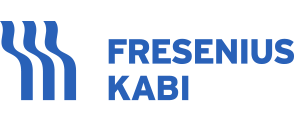Fresenius Kabi, a global health care company that specializes in lifesaving medicines and technologies for infusion, transfusion and clinical nutrition, has long been recognized as an international leader in parenteral nutrition. One of the ways we express our commitment to the highest quality of care is through the exemplary work being done by our Medical Science Liaison (MSL) team.
The Fresenius Kabi MSL team is an interdisciplinary group of highly credentialed and experienced individuals consisting of PharmDs, MDs, Master’s degree dietitians, NPs and RNs. The team works with health care providers across the country to provide the latest scientific information on parenteral nutrition. Their focus has been to help set a new standard within the MSL community for medical education and provider support.
Today, the Fresenius Kabi MSL team plays a leadership role within 10 national organizations including the American Society for Parenteral and Enteral Nutrition (ASPEN). “Our team is highly engaged with health care professionals and professional organizations on a strategic level,” says Fresenius Kabi Senior Manager Delinda Bane-Melvin, MSN, APRN, FNP-BC, CDCES. “These partnerships have been earned as the direct result of our team’s deep knowledge and expertise.”
A great example of Fresenius Kabi’s support and partnership was in response to the COVID-19 pandemic, when hospitals sought immediate guidance on nutrition for patients on ventilators (when NG tube and jejunal tube feeding won’t work). Our MSLs worked with ASPEN and the Society of Critical Care Medicine (SCCM) to quickly develop and disseminate resources of scientific relevance to HCPs treating COVID-19 patients. Fresenius Kabi MSLs also developed an Emergency Management scientific literature reference list to help providers who desired to initiate parenteral nutrition at home rather than in the hospital where parenteral nutrition is often begun. In these ways, Fresenius Kabi’s MSLs were able to collaborate with healthcare and home infusion providers to understand their challenges and provide requested information to assist them with the best decision making possible for the care of their patients.
“Our team is viewed as experts across the health care community,” says Bane-Melvin. “Because nutrition is so important for patients with COVID-19 and other disease states, clinicians reach out to us for guidance.” A recent survey by the MSL Society illustrates the kind of reach Fresenius Kabi has in the field. Says Bane-Melvin: “The survey found that approximately 70% of MSLs were engaged with three or fewer healthcare professional contacts in a week. At Fresenius Kabi, our MSLs were engaging with three times as many contacts per week.”
In addition, because of its deep expertise, the Fresenius Kabi MSL team is a qualified provider of continuing medical education on nutrition – something that is missing from most medical school curricula today.
Fresenius Kabi has built this highly effective team of high caliber individuals in part by focusing heavily on individual development. “People of this caliber want constant enrichment opportunities and chances for further education and development, for both scientific and business excellence,” claims Bane-Melvin.
And she should know: Bane-Melvin was named MSL Manager of the Year by the Medical Science Liaison Society in 2020. “Of course, I was very honored; but what I appreciated most was that I was nominated by my entire team,” she states. Bane-Melvin has been asked to mentor other MSL managers in the field and to write a quarterly column for the Society’s newsletter.
Says Bane-Melvin: “It’s exciting that the MSL Society has taken notice of Fresenius Kabi’s new MSL model, attitude and approach. After all, for our MSLs, it’s not just a job; it’s a calling.”
Fresenius Kabi is a global healthcare company that is doing More in America. We’re investing nearly a billion dollars in new pharmaceutical production facilities, new laboratories, new distribution centers and new ideas to help make America’s supply chain of care stronger and more resilient.
